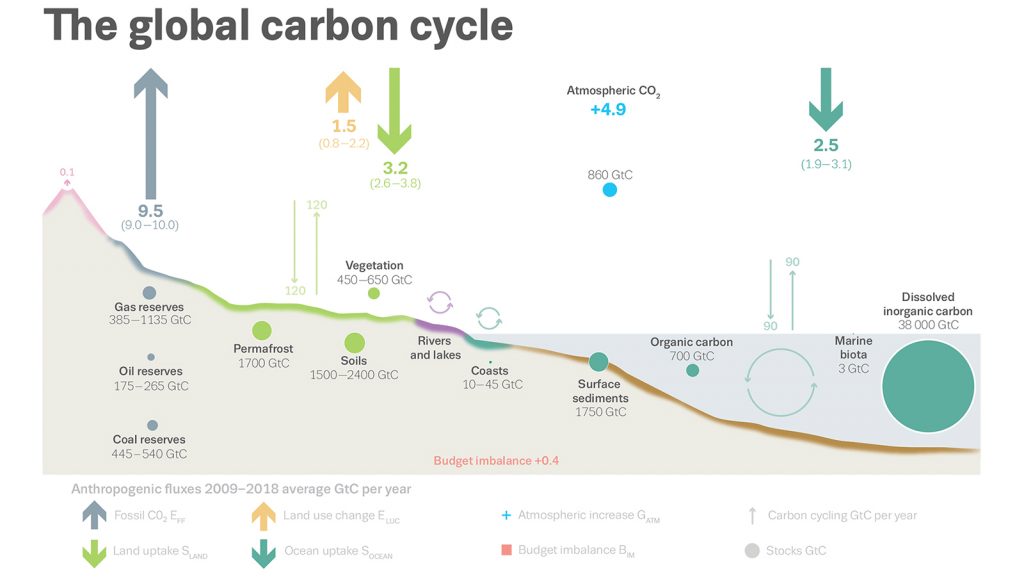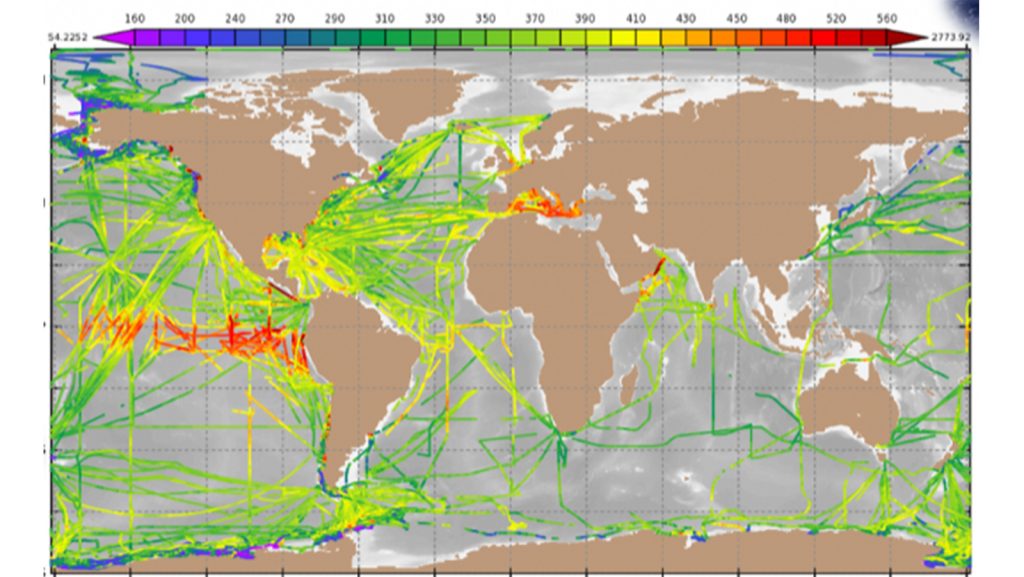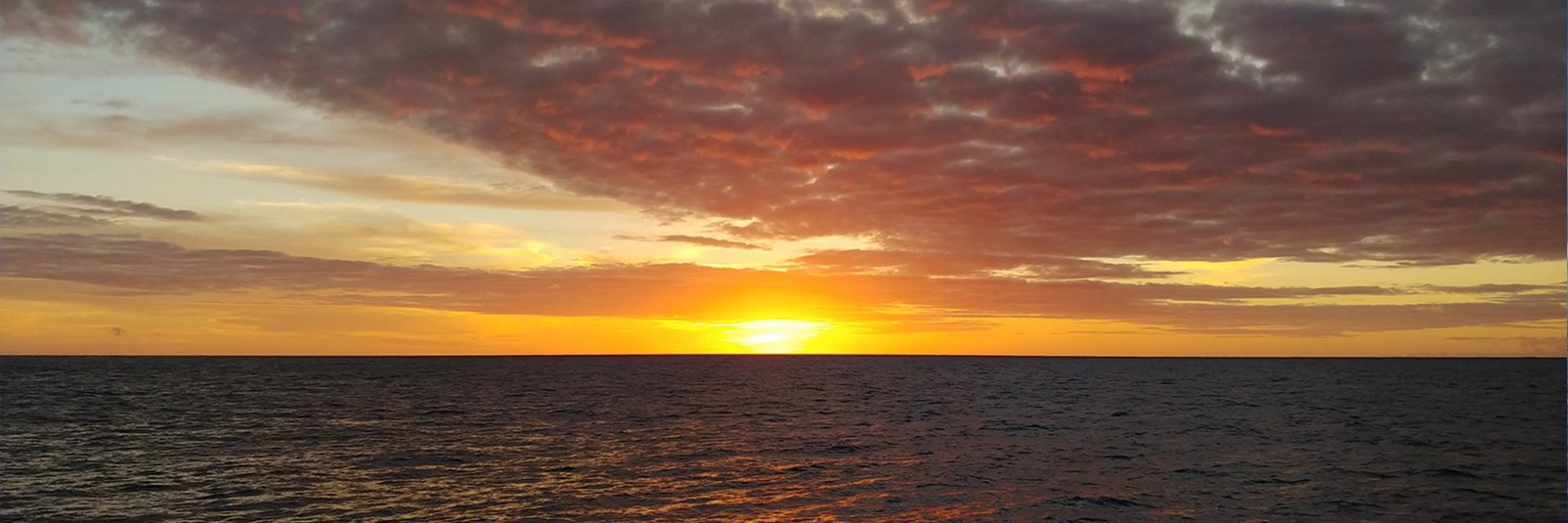Modified text from: 2020 Global Carbon Budget Released by NOAA’s Global Ocean Monitoring and Observing Program
On December 11, 2020 researchers with the Global Carbon Project released their annual update for the Global Carbon Budget. Daily global CO2 emissions are estimated to have decreased by a maximum of about 17% by early April 2020 compared to average levels in 2019. About half of this change is due to changes in surface transport, especially road transport, during the COVID-19 pandemic.

A global collaboration called the Surface Ocean CO2 Atlas or SOCAT collects all surface water CO2 levels annually and is the cornerstone to quantify ocean CO2 uptake that is critical to the Global Carbon Budget. NOAA’s Atlantic Oceanographic and Meteorological Laboratory (AOML) leads the Ships of Opportunity Program (SOOP-CO2), an effort which collectively contributes roughly 30% of the global surface data available in SOCAT. The data is collected from a network of cargo vessels, cruise ships, and research vessels and managed by investigators at AOML, the Pacific Marine Environmental Lab (PMEL) and cooperative institutes.
“Our program has greatly enhanced the quantity and quality of surface CO2 measurements worldwide, leading to a more accurate determination of the ocean carbon sink.” said Denis Pierrot, the SOOP-CO2 lead investigator at AOML.
Dr. Pierrot also recently submitted the annual progress report for the SOOP-CO2 program. In 2020 the program collected roughly 550,000 partial pressure of CO2 measurements around the globe with ships sailing from the Pacific to the Atlantic and high latitude seas.

The uptake of CO2 by the ocean causes ocean acidification, a decrease in pH that makes ocean water more acidic and decreases the availability of carbonate ions which are the building blocks for many economically valuable species including corals and shellfish.
The Global Carbon Budget is produced by more than 80 researchers working from universities and research institutions in 15 countries under the umbrella of the Global Carbon Project. NOAA’s Global Ocean Monitoring and Observing Program provides funding support for ocean carbon observation data that is used to determine the amount of carbon absorbed by the ocean. NOAA research efforts contributed significantly to this global assessment. Contributors to the 2020 paper include Denis Pierrot (NOAA-AOML), Rik Wanninkhof (NOAA-AOML), Simon Alin (NOAA-PMEL), David R. Munro (NOAA-GML/CIRES), Kevin O’Brien (NOAA-PMEL/CICOES), Adrienne Sutton (NOAA-PMEL), Pieter Tans (NOAA-GML) and Nick Bates (BIOS).
Read more about the Global Carbon Budget and find the associated publications. Explore figures and visualize the most up to date data on the Global Carbon Atlas.
